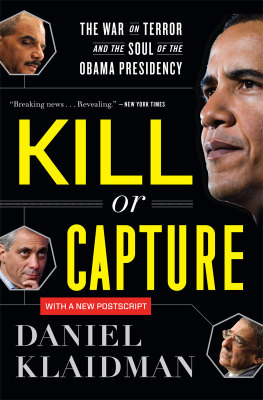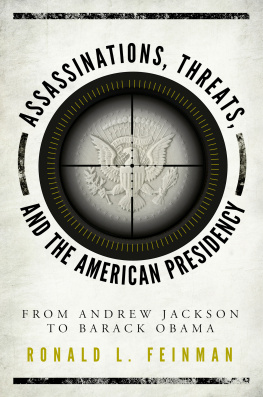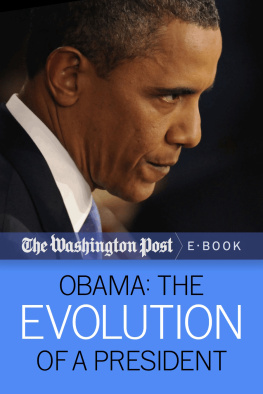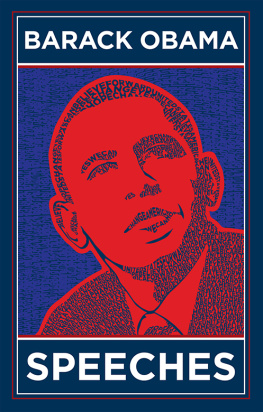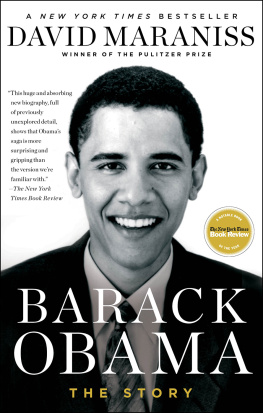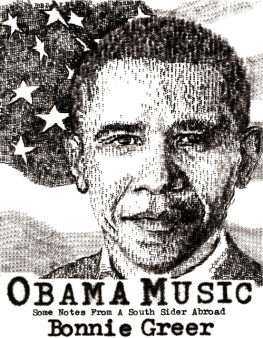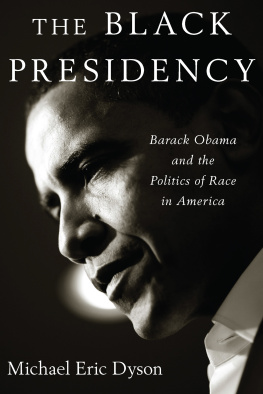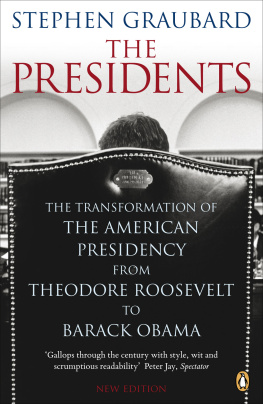First Mariner Books edition 2013
Copyright 2012 by Daniel Klaidman
All rights reserved
For information about permission to reproduce selections from this book, write to Permissions, Houghton Mifflin Harcourt Publishing Company, 215 Park Avenue South, New York, New York 10003.
www.hmhbooks.com
The Library of Congress has cataloged the print edition as follows:
Klaidman, Daniel.
Kill or capture: the war on terror and the soul of the Obama presidency / Daniel Klaidman.
p. cm.
Includes index.
ISBN 978-0-547-54789-3
ISBN 978-0-544-00216-6 (pbk.)
1. War on Terrorism, 20012009. 2. TerrorismPreventionUnited States. 3. United StatesForeign relations21st century. 4. Obama, Barack. I. Title.
HV 6432. K 56 2012
363.325'1560973dc23
2012008228
e ISBN 978-0-547-54778-7
v2.0413
For my parents,
Kitty and Steve Klaidman, with love.
And to the memory of my grandparents,
Ernest, Ilonka, Moe, and Sis.
Cast of Characters
THE WHITE HOUSE
Barack Obama, President of the United States
Joe Biden, Vice President of the United States
Rahm Emanuel, Chief of Staff
William M. Daley, Chief of Staff (succeeding Emanuel)
Jim Messina, Deputy Chief of Staff for Operations
David Axelrod, Senior Adviser to the President
David Plouffe, Senior Adviser to the President (succeeding Axelrod)
John Brennan, Assistant to the President for Homeland Security and Counterterrorism
Greg Craig, White House Counsel
Robert Bauer, White House Counsel (succeeding Craig)
Daniel Meltzer, Deputy White House Counsel
Tom Donilon, Deputy National Security Adviser, National Security Adviser
Valerie Jarrett, Senior Adviser to the President
Robert Gibbs, Press Secretary and Senior Adviser to the President
Jim Jones, National Security Adviser
Denis McDonough, Chief of Staff to the National Security Council, Deputy National Security Adviser
Ben Rhodes, Speechwriter, Deputy National Security Adviser for Strategic Communications
Dan Pfeiffer, Deputy Communications Director, Communications Director
State Department
Hillary Rodham Clinton, Secretary of State
Harold Koh, Legal Adviser
Ambassador Daniel Fried, Special Envoy for the closure of the Guantnamo Bay detention facility
Department of Defense
Robert Gates, Secretary of Defense
Jeh C. Johnson, General Counsel
Department of Justice
Eric Holder, Attorney General
David Ogden, Deputy Attorney General
Robert Mueller, FBI Director
Kevin Ohlson, Chief of Staff for the Attorney General
Amy Jeffress, National Security Adviser for the Attorney General
Matthew Miller, Director of Public Affairs
Matthew Olsen, Executive Director, Guantnamo Review Task Force
Andrew Tannenbaum, Deputy Director, Olsen task force
David Barron, Office of Legal Counsel
Preet Bharara, US Attorney, Southern District of New York
David Raskin, chief prosecutor of the New York Southern District Courts terrorism unit
Department of Homeland Security
Janet Napolitano, Secretary of Homeland Security
David Martin, Principal Deputy General Counsel, Department of Homeland Security
MILITARY & INTELLIGENCE
Admiral Michael Mike Mullen, Chairman of the Joint Chiefs of Staff
General James Hoss Cartwright, Vice Chairman of the Joint Chiefs of Staff
William H. McRaven, Commander, Joint Special Operations Command; Commander, US Special Operations Command
General James Mattis, Commander, US Central Command
Michael Hayden, Director of Central Intelligence
Leon Panetta, Director of Central Intelligence (succeeding Hayden)
Stephen Steve Kappes, Deputy Director of Central Intelligence
Michael Mike McConnell, Director of National Intelligence
Dennis Blair, Director of National Intelligence (succeeding McConnell)
AL-QAEDA AND ITS AFFILIATES
Osama bin Laden, al-Qaeda leader
Ayman al-Zawahiri, bin Ladens deputy
Khalid Sheikh Mohammed, high-level al-Qaeda operative and principal architect of 9/11 attacks
Saleh Ali Saleh Nabhan, leading al-Qaeda operative in East Africa
Anwar al-Awlaki, chief of external operations for al-Qaeda in the Arabian Peninsula
Abu Zubaydah, alleged al-Qaeda member
Umar Farouk Abdulmutallab, the Christmas Day bomber
Baitullah Mehsud, leader of Pakistani Taliban
Richard Reid, the Shoe Bomber
Najibullah Zazi, would-be terrorist, planned attack on New York subway system
Faisal Shahzad, the would-be Times Square bomber
Mohammed Saleh Mohammed Ali al-Kazemi, code name Akron, deputy, al-Qaeda in the Arabian Peninsula
Ahmed Abdulkadir Warsame, Shabab member, liaison to al-Qaeda
OTHER PLAYERS
Sabin Willett and Susan Baker Manning, defense attorneys representing Uighur detainees at Guantnamo
Thomas Wilner, lawyer for Guantnamo detainees
Richard Clarke, counterterrorism adviser to candidate Obama
Sen. Lindsey Graham, R-SC, powerful player on counterterrorism issues
Sen. Sheldon Whitehouse, D-RI, supported Justice Department effort to investigate Bush-era torture
Bruce Riedel, former CIA official who led a White House review of US policy in Afghanistan and Pakistan
Laurence Tribe, Harvard law professor and Obama adviser
Sharon Malone, wife of Eric Holder
Michelle Obama, First Lady
Anthony Romero, Executive Director, American Civil Liberties Union
Tom Malinowski, Washington Director, Human Rights Watch
A Note on Sources
For this book I drew on interviews with more than two hundred sources, most of whom are current or former Obama administration officials. I also benefited from the valuable perspective of many who served in previous administrations, both Democratic and Republican. I talked to numerous academics and legal experts for their insights on the range of issues covered herein. As often as possible, I consulted internal government documents, including contemporaneous notes of key meetings taken by participants and private emails. I also relied on the transcripts of speeches, press conferences, and background briefings provided by the White House and other government agencies. In those instances where I rely on exclusive reporting in newspaper or magazine stories, I cite them in the body of the text.
Ultimately, narrative accounts of events unfolding essentially in real time depend on the willingness of participants to speak candidly to reporters about what theyve observed firsthand. Most of the interviews for this book were conducted on background, which means I agreed not to attribute direct quotes by name. For a variety of reasons, individuals working in presidential administrations are simply unwilling to discuss the inner workings of governmenthow important decisions are made, how ethical dilemmas are resolved, or the human dimensions of their jobswithout a grant of anonymity. That is especially the case when the subject is national security. The late Washington Post editorial-page editor and columnist Meg Greenfield once observed that the off the record part is where the reality and authenticity are to be found.
But implicit in allowing sources to speak anonymously is a reporters obligation to carefully verify the accuracy of their accounts, and to give readers a glimpse into the reporting process so that they can assess the credibility of the information themselves. There are many techniques reporters use to authenticate the accounts of their sources. Most important is cross-referencing what they say with other sources, something I have endeavored to do throughout this book. When I quote President Obama or other key characters, I do so only if that quote was relayed to me by a source who personally heard it. Where possible, I have checked those quotes against contemporaneous notes taken by participants in meetings. Ultimately, I am dependent on the memory of my sources.
Next page
